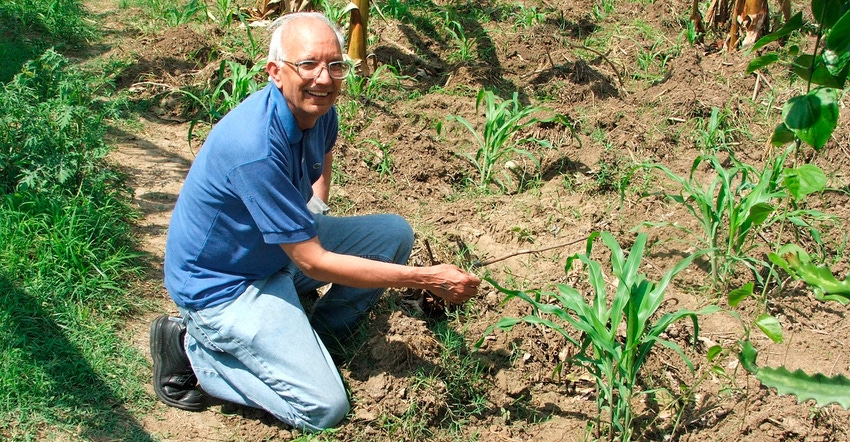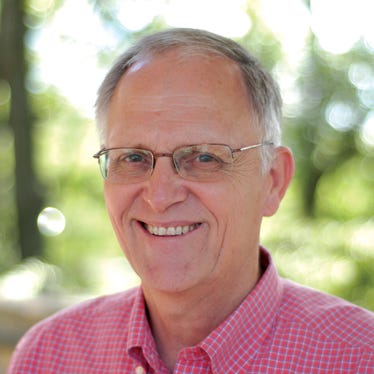June 16, 2020

A leading soil scientist, Dr. Rattan Lal is the winner of the 2020 World Food Prize. The announcement was made June 11 by The World Food Prize Foundation, headquartered in Des Moines, Iowa. It featured prerecorded remarks from U.S. Secretary of State Mike Pompeo and U.S. Secretary of Agriculture Sonny Perdue. World Food Prize Foundation President Barbara Stinson announced the naming of the 2020 Laureate.
Lal is being honored for developing and mainstreaming a soil-centered approach to increasing food production that conserves natural resources and mitigates climate change. A distinguished professor of soil science at Ohio State University, he is the founding director of the Carbon Management and Sequestration Center at OSU.
His research showed how plants can pull carbon from the atmosphere and sequester it in the soil, preventing it from combining with oxygen and creating carbon dioxide, a greenhouse gas that contributes to global warming. “This breakthrough research transformed the way the world saw soils,” Stinson says. “As a result, soils are now not only the foundation for increasing the quality and quantity of food and preserving natural ecosystems, but an important part of mitigating climate change as well.”
Fall symposium online
The $250,000 prize is presented to the winner at the annual World Food Prize symposium in Des Moines in October, which draws about 1,600 attendees from all over the world. The week-long event focuses on global food security and nutrition issues with presentations and discussions by researchers and experts.
Stinson says the symposium events will be held virtually this year due to the pandemic. Officials are still in the process of deciding whether the award ceremony for the World Food Prize, traditionally held at the state Capitol, will be virtual on in-person.
The virtual format will allow more people globally to join the hunger and nutrition discussions and to view the presentations, Stinson says. “We are planning more breakout sessions and side events that allow for deeper discussions through the virtual World Food Prize symposium, which begins October 12.”
The World Food Prize was established in 1986 by the late Norman Borlaug, a native Iowan. He received the 1970 Nobel Peace Prize for his research to create drought-resistant, high-yielding wheat varieties. He is known as the “father of the Green Revolution” that saved a billion people from hunger.
Humble beginnings
“The world’s population continues to grow, and we need to use the resources we have to make sure everyone has enough food on their table,” Pompeo said in the video announcement of Lal winning the 2020 honor. “Dr. Lal’s research in soil science shows that the solution to this problem is right under our feet. He’s helping the Earth’s estimated 500 million small farmers be faithful stewards of their land through improved management, less soil degrading and the recycling of nutrients. The billions of people who depend on these farms stand to benefit greatly from his work.”
A refugee, Lal grew up on a subsistence farm in India. His determination to learn and succeed in school propelled him to become one of the world’s foremost soil scientists. His pioneering research on the restoration of soil health in Africa, Asia and Latin America led to revelations that improved crop yields, natural resource conservation and climate change mitigation. The ag practices Lal advocated for are now at the heart of efforts to improve agriculture in the tropics and globally.
Globally, Lal’s models indicate that by 2100, restoring soil health could more than double the annual grain yield to feed the growing world population, while decreasing the land area under grain crop cultivation by 30% and reducing total fertilizer use by half.
“Improving soil health has many, many benefits,” Lal said. “Food and nutrition are one. Water quality is another one, as is biodiversity and biofuel production.”
Soil health benefits
“What we’ve lost from soils and vegetation is a tremendous amount,” Lal said, “and better agriculture can put it back. The most serious weapon of mass destruction globally is hunger and malnutrition. We’ve been losing 9 million people every year to hunger-related deaths. We should do whatever we can, so farmers adopt techniques that eliminate hunger and improve the environment at the same time. World peace and happiness lie in the hands of farmers.”
“Here at USDA our motto is to do right and feed everyone,” Perdue said. “The scientific innovations, like those developed by Dr. Lal, embody this motto in the work that he and we are doing. The agricultural practices Lal developed and advocated for are now at the heart of efforts to improve agricultural systems.”
50th World Food Prize laureate
Lal, age 75, is already the recipient of several prestigious awards for his work. He received his Ph.D. from Ohio State in 1968. After conducting research in Australia and Nigeria, he returned to OSU in 1987, becoming director of the university’s Carbon Management and Sequestration Center.
“Dr. Lal is a trailblazer in soil science with a passion for research that improves soil health, enhances agricultural production, improves the nutritional quality of food, restores the environment and mitigates climate change,” Stinson said. “His decades of work to address all of these elements fully warrant his recognition as the 50th World Food Prize Laureate.”
Commenting on Lal’s selection, Gebisa Ejeta, World Food Prize selection committee chair and 2009 WFP Laureate, said, “Every year we are astounded by the quality of nominations for the prize, but Dr. Lal’s stellar work on management and conservation of agriculture’s most cherished natural resource, the soil, set him apart. The impact of this research and advocacy on sustainability of ag and the environment can’t be overstressed. He is a most deserving recipient and inspiring leader.”
About the Author(s)
You May Also Like






